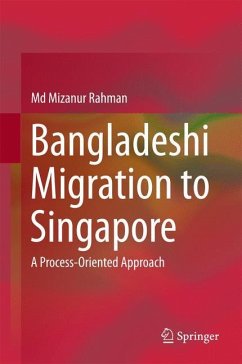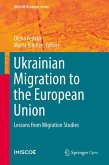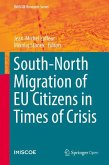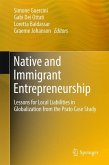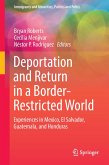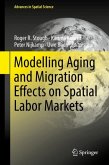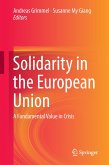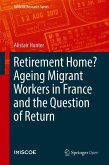This book examines international labour migrants in the context of South-South migration with a focus on Bangladeshi migration to Singapore. Two principal questions in the South-South migration are addressed: Why and how individuals migrate for work; and what impact this temporary form of migration has for migrants and their families. The book adopts a relatively new methodological approach to labour migration by linking different phases that migrants undergo in the migration process and by combining migrants in the host country with their families in the origin country. This is achieved through identifying and addressing six key areas: (i) migration policy, (ii) social imperatives of migration (iii) recruitment, (iv) social worlds of the migrants, (v) remittance process, and finally, (vi) family development dynamics. This book introduces the bari to migration research as a unit of analysis over and above individual and family units. The book reveals how social and cultural forces both initiate and perpetuate migration, and later on influence bari dynamics.
"This well-written book combines empirical research and existing literature on migration, thus enhancing our understanding of international labour migration in the context of Singapore. ... his book is an important source of knowledge for social scientists, policymakers and researchers, with the potential to become an important text for various courses related to migration and development studies." (Diotima Chattoraj, SOJOURN - Journal of Social Issues in Southeast Asia, Vol. 34 (2), July 2019)
"His book is an important source of knowledge for academics, policymakers and researchers. Social science scholars will find this study particularly useful and it should become an important text for various courses covering issues related to migration studies, development, globalisation, population dynamics and Asian labour markets. This work, significantly, also identifies crucial policy implications for both destination and origin countries." (A.K.M. Ahsan Ullah, South Asia Research, Vol. 38 (03), November, 2018)
"This book, examining Bangladeshi labour migration to Singapore, contributes significantly to our understanding of the growing phenomenon of migration within Asia. ... In this book, author Mizanur Rahman departs from the economic narrative that is dominant in the migration literature to explain the drivers of Bangladeshi migration and instead relies on social and cultural explanations in his analysis. The strength of this book is that it is based on extensive fieldwork by the author, conducted over close to two decades." (Mathew Mathews, Journal of Contemporary Asia, April, 2018)
"His book is an important source of knowledge for academics, policymakers and researchers. Social science scholars will find this study particularly useful and it should become an important text for various courses covering issues related to migration studies, development, globalisation, population dynamics and Asian labour markets. This work, significantly, also identifies crucial policy implications for both destination and origin countries." (A.K.M. Ahsan Ullah, South Asia Research, Vol. 38 (03), November, 2018)
"This book, examining Bangladeshi labour migration to Singapore, contributes significantly to our understanding of the growing phenomenon of migration within Asia. ... In this book, author Mizanur Rahman departs from the economic narrative that is dominant in the migration literature to explain the drivers of Bangladeshi migration and instead relies on social and cultural explanations in his analysis. The strength of this book is that it is based on extensive fieldwork by the author, conducted over close to two decades." (Mathew Mathews, Journal of Contemporary Asia, April, 2018)

